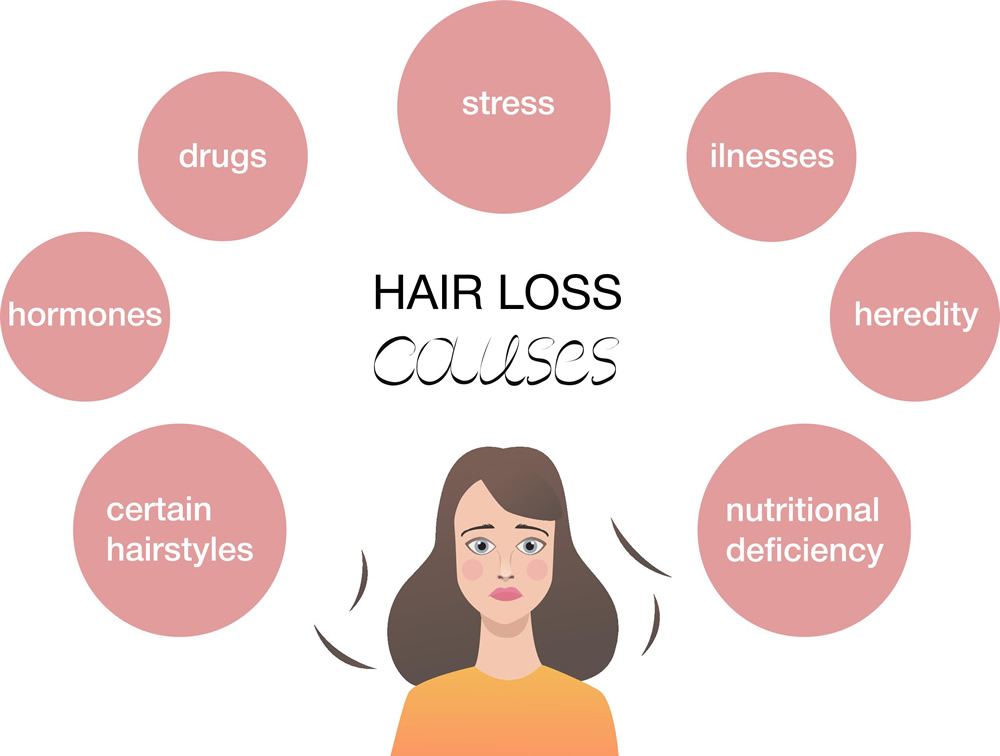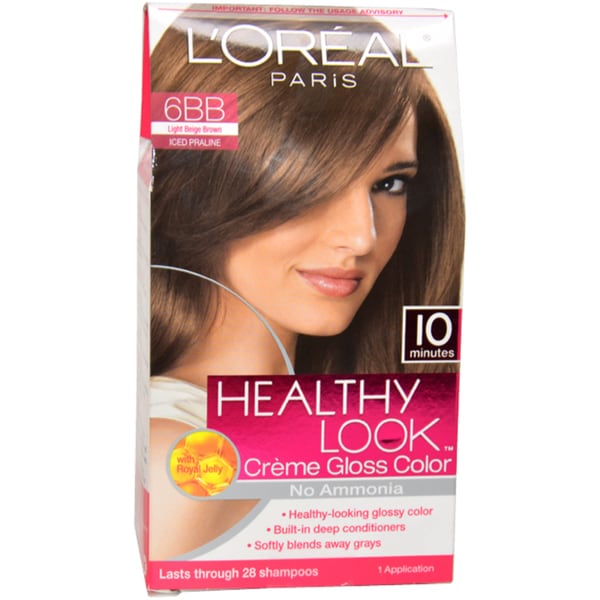Table Of Content

Telogen effluvium refers to the excessive shedding of hair follicles, and it occurs when hair follicles prematurely skip to the end of the hair growth cycle, she adds. According to the American Academy of Dermatology, it’s completely normal to shed anywhere between 50 to 100 strands of hair per day. However, if you’ve noticed more strands falling out of your head than normal, you may be experiencing alopecia, the medical term for hair loss. Common diagnoses include androgenetic alopecia, alopecia areata, telogen effluvium, and lymphocytic scarring alopecia, Agbai tells USA TODAY. Androgenetic alopecia is a common form of hair loss in both men and women.
Types of hair loss in women
Once you know what's causing your stress, you can take steps to avoid or remove those triggers from your life. If you must wear your hair up, try to use loose styles that won't pull on the roots. And when you're not wearing your hair up, give your scalp a break by letting your strands down. If your hair is prone to tangles, keep it tied up in a ponytail, bun, or braid when possible. However, avoid pulling hair too tight, which can cause hair to break. The American Academy of Dermatology (AAD) estimates that we shed about 50 to 100 hairs each day.
What are the treatment options for hair loss?
No, dehydration doesn't cause your hair to fall out, but it can accelerate hair loss if you're already experiencing it. When your body is dehydrated, it's more likely to enter into a state of stress, which can trigger hair shedding. To prevent dehydration (and hair fall), make sure you're drinking plenty of water every day. Being in a state of chronic stress can actually lead to hair fall. When you're stressed, your body goes into survival mode and the hair growth cycle is disrupted. This can cause strands to fall out before they've had a chance to grow to their full potential.
strange symptoms of COVID-19, including rashes, COVID toes and hair loss
This sudden decrease can cause that extra hair to fall out (usually three to six months after delivery). So, if you're seeing hair fall after having a baby, it's most likely due to postpartum hair loss. Your hair cycle should resume the growth stage once your hormones adjust. But if it becomes persistent, talk to your doctor, and keep reading for the best solutions. Generally, the average adult human loses about 50 to 100 strands of hair per day [1]. The anagen phase is the active growth period when new hairs grow from their follicles.
Can medications like Ozempic® and Wegovy® decrease your stroke risk?

Low levels of iron, zinc, and vitamins B12 and D have been linked to hair loss. All seemingly have a role in stimulating hair growth or helping with follicle health. However, the cycle can be disrupted by the likes of aging and hormonal changes, such as menopause. As you age, some follicles no longer grow new hair, leading to a thinner look or bald patches.
Rosemary Oil For Hair: Benefits, Side Effects, and How to Use It - Women's Health
Rosemary Oil For Hair: Benefits, Side Effects, and How to Use It.
Posted: Wed, 20 Mar 2024 07:00:00 GMT [source]
The good news is that it's usually temporary and your hair should start to grow back once you stop taking the medication. Your doctor can even prescribe a non-hormonal alternative if hair loss is a big concern. Different types of hair transplants include grafting, scalp reduction, flap surgery, and tissue expansion. Of these, hair grafting is the most common hair transplant procedure. Sometimes referred to as hair plugs, each graft contains one to 15 hairs. Menopause-related hair loss can occur in other parts of the body as well.
Hair loss: Signs and symptoms
Most people lose anywhere from 50 to 100 strands of hair each day, according to the American Academy of Dermatology. On days you wash your hair, you might lose up to 250 strands. Hair loss can occur if you wear pigtails, braids or cornrows, or use tight hair rollers. Telogen effluvium occurs when large numbers of hair follicles push into the resting phase. With minoxidil, you might also see hair growing in places other than your scalp (cheeks and forehead, for example).
Warning: May Cause Birth Defects
This article provides an overview of menopause and hair loss. It discusses the hormones that can cause hair to fall out and strategies for combating menopausal hair loss. Studies show slightly more than half of all females experience some degree of menopause-related hair thinning or loss. Alopecia areata commonly presents as round bald patches on the scalp.
The best shampoo for hair loss in 2024 - Expert Reviews
The best shampoo for hair loss in 2024.
Posted: Tue, 09 Apr 2024 07:00:00 GMT [source]
What? Another medical form to fill out?
Being rough on your mane will only lead to more hair fall in the long run. Let's dive into the most common culprits so you can get a better idea of what causes hair to fall out for you. Unfortunately, there are a zillion and one things that can cause hair to fall out.
But with other types, such as telogen and anagen effluvium, hair loss is reversible. So long as the underlying cause is treated or stopped, you can expect regrowth. However, it can take up to six months before you notice results. Some women may even notice hair growth changes after going off hormonal birth control pills. Hormonal changes of any kind, particularly falling estrogen levels, can temporarily disrupt the hair life cycle.
Because so many things can cause hair loss, it’s best to schedule an appointment with a medical professional if you notice any changes in your hair. Telogen effluvium is a type of sudden hair loss that results from emotional or physical shock, like a traumatic event, period of extreme stress, or a serious illness. There are several types of hair loss, some are common and some are rarer, and each with different underlying causes.
This is because Minoxidil works by using the SULT1A1 enzyme to convert to its active form, minoxidil sulfate, which then helps to grow new hair. If you use Minoxidil and you have low SULT1A1 enzyme activity, the treatment will not work. Abruptly stopping medication can also cause additional health issues. So if you're thinking about quitting, talk to your doctor first. They can help you wean off the medication safely to avoid any health complications. Try to brush your hair gently, using a wide-toothed comb to avoid tugging and pulling at the roots.

No comments:
Post a Comment